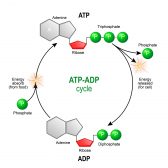Definition
noun
It is part in nitrogen cycle wherein atmospheric nitrogen fixation carries out non-living components to gather relatively inert gas forming reactive nitrogen compounds when chemically combined with other elements.
Supplement
Lightning is the main natural source of abiotic factor that contributes the atmospheric nitrogen fixation. The massive energy of lightning split nitrogen molecules and facilitates the atoms to unite with oxygen in the air to form nitrogen oxides. Consequently, it dissolves through rains and forms nitrates that are carried to the ground.
Nitrogen fixation is a procedure wherein nitrogen in the atmosphere is converted into ammonium and these atmospheric nitrogen is lifeless or motionless, it does not react with other compounds to form new active compound, thus the fixation process carried out in order to open up the nitrogen diatomic structure to create a usable nitrogen compounds such as ammonia, nitrates and nitrites.
This fixation is vital to all life forms since nitrogen is necessary to biosynthesize the essential building blocks of animals and plants like in RNA and DNA it needs nucleotides or the amino acids in proteins. As a result nitrogen fixation is important in agriculture and livestock industry as well as in manufacturing explosives and fertilizers.
See also:
• nitrogen fixation
• nitrogen cycle
• ammonium
• nitrates
• nitrites







